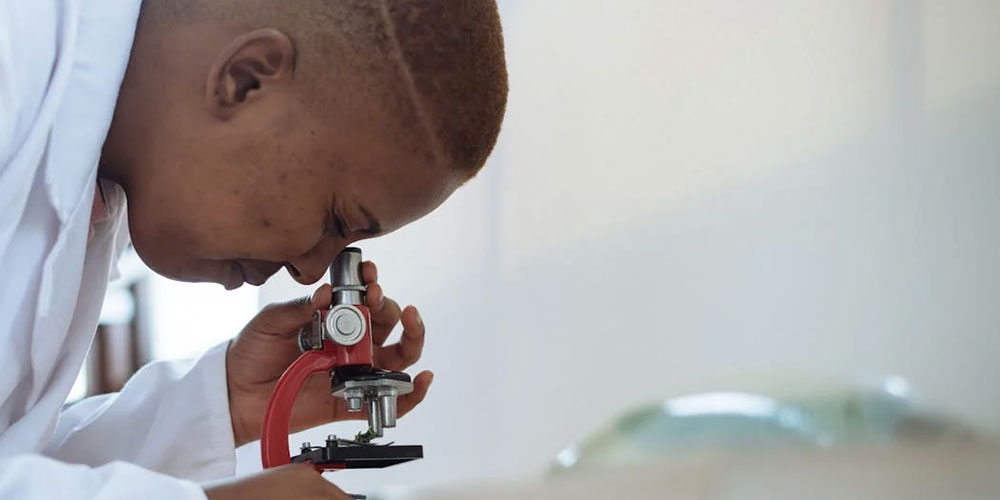If you were asked to choose one description that best explains your abilities, you’d call yourself a problem solver. You just have a knack for using information to come up with solutions. You’re also interested in animals and the natural world. It might come as a pleasant surprise to hear there’s a career that combines all these passions and strengths.
Veterinary epidemiologists respond to and prevent disease outbreaks in animal populations. They work at the intersection of human, animal, and environmental wellness to address some of the most complex health problems we face.
If veterinary epidemiology sounds intriguing, you probably want to gather a little more information about what it entails. Since we’ve already done some research about the field, you can start here. Take a look so you can start to think about whether veterinary epidemiology might be the right career for you.
What is veterinary epidemiology?
One of the many fields that falls within veterinary public health, veterinary epidemiology focuses specifically on disease surveillance, response, and prevention. It involves data collection and analysis to develop and test hypotheses related to disease patterns. This allows veterinary epidemiologists to better understand risks and how to prevent widespread illness.
Veterinary epidemiology is an important field, because there’s a considerable amount of overlap between human and animal health. Many of the conditions threatening other species also have implications for people. According to the Centers for Disease Control and Prevention (CDC), more than 60 percent of infectious human diseases have an animal source. Lyme disease and West Nile virus are two notable examples.
What do veterinary epidemiologists do?
The exact work a veterinary epidemiologist does can vary quite a lot. Some work at universities to educate the next generation of veterinarians and public health professionals, but many are employed by various government organizations. You can find veterinary epidemiologists working for the CDC, the US Department of Agriculture (USDA), the National Park Service (NPS), and more.
Though preventing and controlling the spread of disease is common among veterinary epidemiologists, there are numerous duties involved. These veterinary professionals may be involved in the following:
- Researching disease patterns
- Investigating disease outbreaks
- Testing vaccine efficacy
- Monitoring antimicrobial drug resistance
- Educating the public
What might this look like in practice? Consider a veterinary epidemiologist investigating a disease outbreak. They dig into data and draw on their veterinary medicine knowledge to determine the cause of the problem. They then set out to see what can be done to prevent future outbreaks. Their proposed actions will vary depending on the disease and related risk factors. Perhaps new vaccination protocols or sanitation standards will emerge as a result.
How do you become a veterinary epidemiologist?
Your journey to becoming a veterinary epidemiologist begins with an undergraduate education. While doctor of veterinary medicine (DVM) programs don’t necessarily require students complete a four-year undergraduate education, it’s a good idea to do so.
There are a considerable number of prerequisite courses you need to complete prior to attending vet school. The Association of American Veterinary Medical Colleges (AAVMC) also reports most accepted students have a four-year bachelor’s degree.
You can apply to veterinary programs after obtaining your undergraduate degree and completing any lingering requirements. Once in school, you’ll spend the first three years completing the basic sciences portion of your education. This will include lectures, labs, and exams. You’ll also progressively build your practical skills in preparation for clinical rotations during your final year of school. You’ll earn your DVM upon completing the program.
The next step is passing the North American Veterinary Licensing Examination (NAVLE) and completing state-specific requirements to become a veterinarian. You’ll also need some additional education to round out your knowledge base. Veterinary epidemiologists often obtain additional relevant education, such as a master’s in public health.
While obtaining board certification isn’t required, many veterinary epidemiologists do. You first need to become a diplomate of the American College of Veterinary Preventive Medicine, gain at least a few years of practical experience, and contribute to epidemiology research or teaching. Once you meet all the requirements, you can take the certification exam.
What qualities are most important for veterinary epidemiologists?
It’s probably pretty clear that being a lifelong learner is critical for anyone who wants to be a veterinary epidemiologist. These professionals are constantly delving into different subject areas to learn how we can better protect both humans and animals from disease. Veterinary epidemiologists are always on their toes because new threats are emerging due to population growth and climate change.
The US Bureau of Labor Statistics (BLS) highlights a number of qualities that are important for epidemiologists, and they all apply to veterinary epidemiologists also. It’s important for these professionals to be critical-thinkers, detail-oriented, and skilled at teaching. Being able to educate others is particularly crucial, because veterinary epidemiologists may need to communicate threats and preventive measures to any number of people.
Take on tomorrow’s health issues
Though a love of animals can set the stage for a career in veterinary epidemiology, there’s clearly a lot more to it. You must be equally passionate about human health. And you need to be willing to embrace challenges and work through uncertainty. It’s a fascinating field for those with an insatiable desire to learn.
If you could see yourself as a veterinary epidemiologist, it may be time to start thinking about how to proceed. Obtaining your DVM is an important part of the process. Before you can earn your degree, though, you first need to apply and gain acceptance to veterinary school.
Depending on where you are in your journey, you may need to finish some undergraduate coursework, accumulate veterinary work experience, or take the Graduate Record Examination (GRE). Learn more about the essential application components by reading our article, “The Vet School Requirements Aspiring Animal Doctors Need to Know About.”

